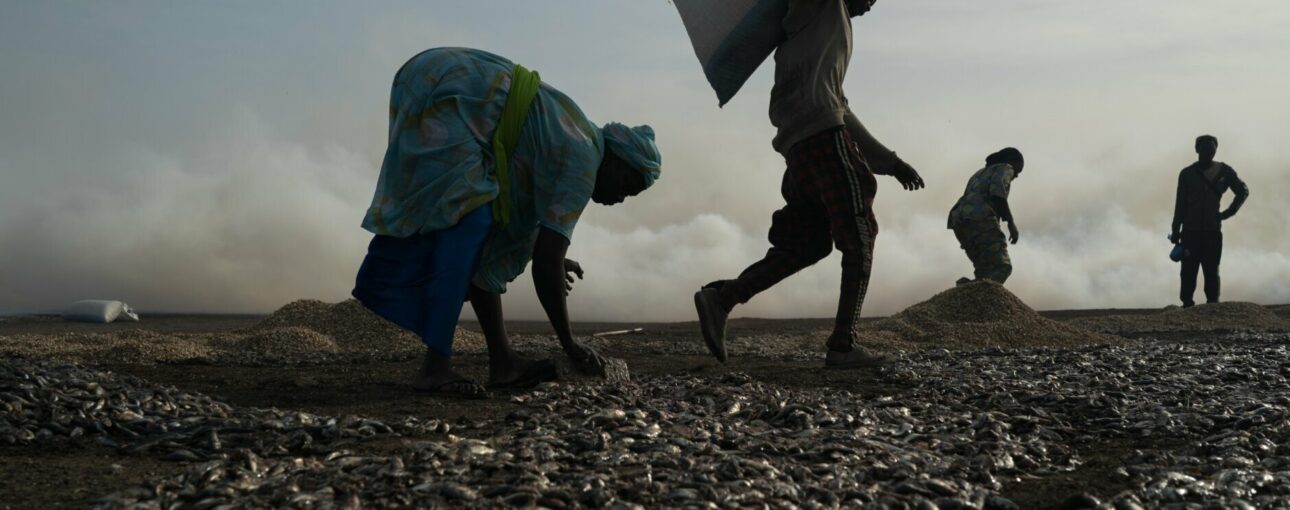Rising Tides, Fading Livelihoods: The Resilience of Senegal's Women Fishermen in the Shadow of Climate Change
In Senegal, women play a crucial role as fishermen, contributing significantly to the country’s coastal communities and economy. However, these women are facing formidable challenges due to the adverse impacts of climate change on their livelihoods and resilience.
Climate change has triggered a range of environmental shifts, including rising sea levels, warmer ocean temperatures, and unpredictable weather patterns. These changes have disrupted the delicate marine ecosystems that support Senegal’s fishing industry, making it increasingly difficult for women to sustain their traditional fishing practices and secure their livelihoods.
One of the major challenges is the depletion of fish stocks. As fish populations decline due to overfishing and changing ocean conditions, women fishermen have to venture further from the shore and invest more time and resources to catch fewer fish. This puts immense pressure on these women and their families, as they struggle to make ends meet and support their communities.
Moreover, the increasing frequency and intensity of extreme weather events, such as storms and cyclones, pose significant dangers to the safety and well-being of women who work at sea. Their vulnerability is exacerbated by limited access to resources and information on disaster preparedness, making it difficult for them to cope with these disasters and recover afterward.
In the face of these challenges, African activists for climate justice are working tirelessly to raise awareness about the plight of Senegalese women fishermen and advocate for meaningful action. They highlight the importance of gender-sensitive policies and interventions that recognize and address the unique vulnerabilities of women in the context of climate change.
These activists promote sustainable fishing practices and advocate for the inclusion of women in decision-making processes related to natural resource management. By empowering women with knowledge, skills, and resources, they aim to enhance their resilience and adaptive capacities in the face of climate change.
The fight for climate justice in Senegal and across Africa seeks to hold governments and international organizations accountable for their climate commitments. It demands equitable climate action that prioritizes the needs and rights of vulnerable communities, including women fishermen, who are often the hardest hit by climate change impacts.
In the heartrending documentary “Adverse impacts of climate change: Women and Resilience” we witness the unyielding spirit of Senegalese women fishermen as they face the relentless onslaught of climate change. The film captures their daily struggle against rising tides and diminishing fish stocks, showcasing their determination to preserve their traditional way of life. Despite the odds stacked against them, these resilient women exhibit courage, resourcefulness, and solidarity within their communities. This documentary sheds light on their extraordinary resilience, inspiring audiences worldwide to rally behind their cause and support the urgent fight for climate justice.

